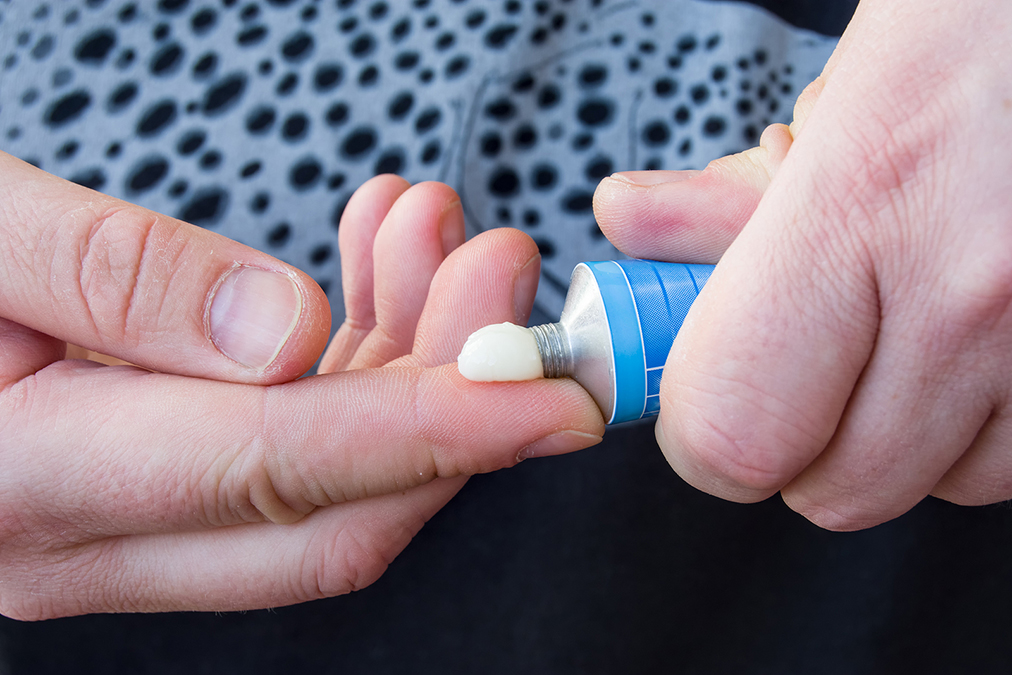 Osteoporosis is generally blamed on lack of specific nutrition and exercise.
Osteoporosis is generally blamed on lack of specific nutrition and exercise.
But a new study in the Journal of the European Academy of Dermatology and Venereology reveals that a common type of skin cream carries the blame.
Corticosteroid creams are commonly used for inflammatory skin conditions like eczema, psoriasis, and allergic reactions. They are also used to help with arthritis pain and swelling.
A team of Taiwanese scientists wondered whether the creams were safer for our bones than the injected and oral types, and decided to find out.
The researchers used the Taiwan National Health Insurance Research Database to select 129,682 cases of individuals diagnosed with osteoporosis and 34,999 cases of people who had experienced major osteoporotic fractures.
These cases were then compared to a large control group of 518,728 individuals without osteoporosis and 139,996 without such fractures, matched based on age and sex.
They then examined the relationship between the cumulative doses of corticosteroid cream and the incidence of osteoporosis and fractures. The doses were categorized as low, medium, and high.
This is what they found.
-
1. There was a clear relationship between the extended use of topical corticosteroids and the risk of developing osteoporosis and fractures.
2. Compared to people who did not use these creams, those exposed to low, medium, and high cumulative doses over five years had 22%, 26%, and 34% higher odds of developing osteoporosis, respectively.
3. These three doses were associated with a 12%, 19%, and 29% higher odds of experiencing a major osteoporotic fracture.
4. Women were at a higher risk of both osteoporosis and fractures than men due to these creams.
5. Younger people, specifically those under 50 years, faced the highest risk of corticosteroid-linked osteoporosis compared to other age groups.
The implications of these findings are serious, especially for healthcare professionals and the people for whom they prescribe corticosteroid creams.
There is an aspect of this discovery that is also particularly interesting. While the human skin is obviously porous, it is usually assumed that it’s difficult to get creams to penetrate deep enough to work for bone and joint conditions. Anyone who has tried to use topical anti-inflammatories for arthritis can testify how poorly they actually work against pain.
But this study clearly shows that they do make their way deep enough into our bodies to compromise our bone density and strength.

 Overcoming IBD
Overcoming IBD Multiple Sclerosis
Multiple Sclerosis Banishing Bronchitis
Banishing Bronchitis Gum Disease Gone
Gum Disease Gone Overcoming Onychomycosis
Overcoming Onychomycosis Neuropathy No More
Neuropathy No More The Prostate Protocol
The Prostate Protocol Brain Booster
Brain Booster
 Ironbound
Ironbound
 Solution for Shingles
Solution for Shingles
 The Bone Density Solution
The Bone Density Solution
 The Ultimate Healing Protocol
The Ultimate Healing Protocol
 The Parkinson's Protocol
The Parkinson's Protocol
 The Chronic Kidney Disease Solution
The Chronic Kidney Disease Solution
 Overthrowing Anxiety
Overthrowing Anxiety The Fatty Liver Solution
The Fatty Liver Solution The Hypothyroidism Solution
The Hypothyroidism Solution
 The End of Gout
The End of Gout The Blood Pressure Program
The Blood Pressure Program
 The Oxigized Cholesterol Strategy
The Oxigized Cholesterol Strategy
 Stop Snoring And Sleep Apnea Program
Stop Snoring And Sleep Apnea Program
 The Arthritis Strategy
The Arthritis Strategy The Vertigo & Dizziness Program
The Vertigo & Dizziness Program The 3-Step Diabetes Strategy
The 3-Step Diabetes Strategy Hemorrhoids Healing Protocol
Hemorrhoids Healing Protocol The Erectile Dysfunction Master
The Erectile Dysfunction Master Weight Loss Breeze
Weight Loss Breeze The IBS Program
The IBS Program The Insomnia Program
The Insomnia Program The Migraine and Headache Program
The Migraine and Headache Program The Neck Pain Solution
The Neck Pain Solution The Menopause Solution
The Menopause Solution The Ejaculation Master
The Ejaculation Master The TMJ Solution
The TMJ Solution The Acid Reflux Solution
The Acid Reflux Solution The Fibromyalgia Solution
The Fibromyalgia Solution The Psoriasis Strategy
The Psoriasis Strategy